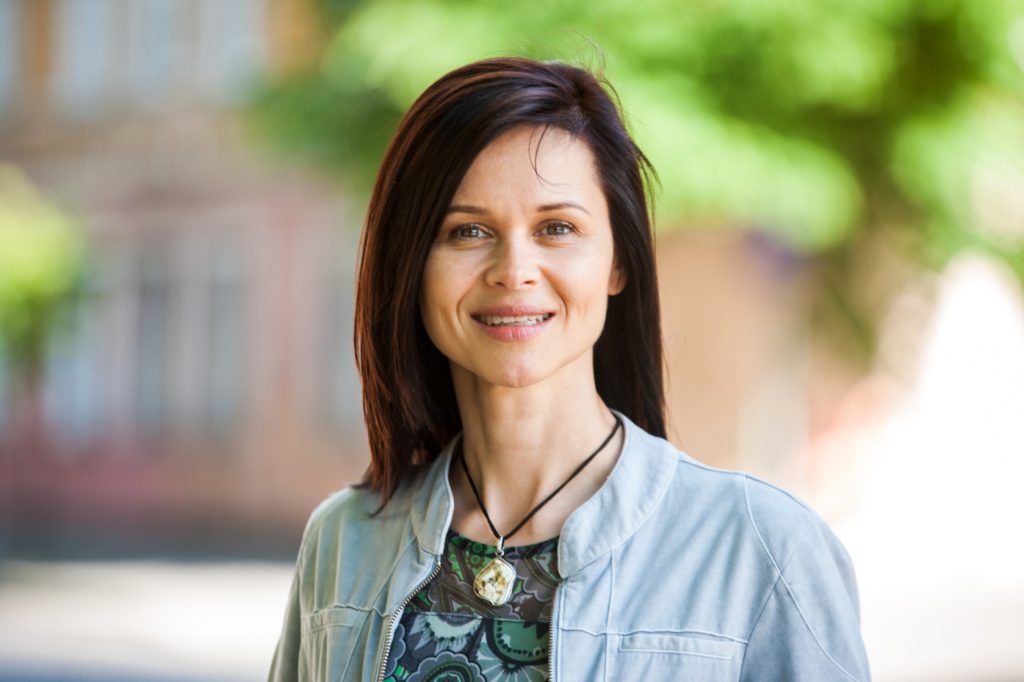Language learning: a window to other cultures and better jobs

“For a young person entering the labour market, knowing languages opens up opportunities for better paid jobs that will enable them to better fulfil themselves. There is also a proven intercultural benefit – learning a language opens a window to another culture. Today, in the labour market and in the world of science, English is a necessary ‘global’ competence, and knowledge of other languages is an advantage. Speaking a foreign language other than English at work, a language that is your colleagues’ or business partners’ first language, gives you an understanding of a multicultural world and improves your performance. Neurolinguistic research shows that the knowledge and active use of several languages improves cognitive abilities at different ages – it helps schoolchildren to perform better in mathematics and other tasks, and it delays senile dementia at an older age,” says Assoc. Prof. Vilma Bijeikienė, the Vice-Rector for Communication at Vytautas Magnus University, explaining the benefits of knowing languages in today’s world.
According to the Vice-Rector, multilingualism can be associated with values such as openness to cultures, freedom of choice, and democracy – these values have been upheld by VMU for many years, which is why the University has developed a unique and successful language learning ecosystem: students have particularly favourable conditions to develop competences in different languages.
VMU, which upholds freedom as a core value, provides the community with highly flexible conditions for learning languages. In addition to the Institute of Foreign Languages, which offers the largest number of language courses in Lithuania – around 30 – to all students, staff and the general public, the University also runs a wide range of language and culture study programmes. Students can also choose one of these programmes as their minor studies, alongside their chosen major.
“Such a sustainable language policy is important for creating a multilingual and international environment at the university, where foreign languages can be taught using students’ and teachers’ linguistic repertoire and competences in different languages at different levels. It also helps to learn the language faster,” Assoc. Prof. Bijeikienė explains.

The benefits of multilingualism are proven by research
According to Bijeikienė, the benefits of multilingualism have long been talked about and have been proven by research. For example, according to a study conducted by the University of Florida, in this US city, workers who speak both Spanish and English earn $7,000 more per year than those who only speak English. Another study conducted in Canada found that bilingual women earn 6.6% and bilingual men earn 3.6% more than their English-only peers. According to a 2019 survey by the agency “Kaunas IN”, in Lithuania, knowledge of certain foreign languages can increase salaries by up to a fifth: by 10-15% if you speak Spanish, Italian, French or German, and by 15-20% if you speak Danish, Norwegian, Swedish or Finnish.
“The economic and intercultural benefits are obvious. Creativity is also worth mentioning – it is often pointed out that people who speak several languages have greater creative skills. It goes without saying that creativity is an extremely important competence in today’s society,” says VMU Vice-Rector, noting another benefit of multilingualism.
According to her, it is also worth pointing out that multilingualism is not the same as knowing several different languages. Multilingualism is a new way of looking at language learning not as separate subjects but as complementary competences. This is something that the European Union, the Council of Europe and other institutions are strongly promoting today through various initiatives.
“There is growing evidence that monolingual language teaching is less effective because it does not exploit students’ linguistic potential or similarities between languages, for example, if a Lithuanian teacher teaches German to Lithuanians through Lithuanian, while everyone involved in the process can speak English. English and German are Germanic languages, so the links between them are huge. Using the principles of multilingual education, English language can help to learn German, for example, by using articles that are generally absent in Lithuanian. It is also useful for learning French or other Romance languages – after all, more than half of English vocabulary comes from French or Latin. Lithuanian language is much less helpful in these cases,” says Assoc. Prof. Bijeikienė, who is a member of the Board of the European Language Council, adding that in general, English is often used in Europe as a doorway to other languages.

Shortage of foreign language teachers in schools
Despite the benefits of multilingualism, some foreign languages are not sufficiently supported in Lithuania – there is a shortage of French, German and other language teachers in schools, so sometimes schoolchildren do not have the opportunity to take classes of the language that they like. Businesses are also faced with a shortage of workers who speak analogous languages, forcing them to forego attractive investments and expansion.
“Those who think that being fluent in English will help them fit into a multicultural team and develop contacts with different countries are often left disappointed. Businesses working with citizens of German-speaking countries, for example, emphasise that the use of German is influenced by cultural factors. The same applies to Italian or French capital companies, where it’s not enough to have a good command of English – competences in other languages, knowledge of the cultures and habits of respective countries, and intercultural competences are also required,” notes Dr. Jurgita Macijauskaite-Bonda, the Vice-Dean of the Faculty of Humanities at VMU. According to the Vice-Dean, graduates or students who speak several languages are quickly hired by employers, especially if they have already participated in exchange programmes and have had the opportunity to get to know the culture and mentality of the people of the countries or regions of the language they are studying.
Italian, German, and French – languages of culture, commerce, and international organisations
The updated first-cycle study programme Foreign Languages and Cultures at Vytautas Magnus University allows students to choose Italian, French, or German language and culture studies. Graduates of such studies can work as specialists in these languages; they can also work in Lithuanian state and EU institutions as well as in business companies as experts in the politics, economics, and society of the countries where these languages are spoken – anywhere where international business, media, marketing, cultural, and other projects need to be prepared and implemented. Such specialists are also welcome in cultural, educational, academic, and public communication institutions, cultural centres, and tourism agencies. Many graduates work as language teachers, while those who dream of becoming translators can try their hand at working in the EU Institutions and translation agencies, or they can engage in creative activities.
“As interviews with students and surveys show, the choice of studying a particular language and culture study programme is influenced by different factors. German is the language of culture, commerce, and science. It is used in the creative Berlin, in the world-class companies that produce almost everything from train locomotives to pencils, and in the laboratories of the Max Planck research institutes. Meanwhile, Italian, Spanish, and French are languages that many people fall in love with, first for their beauty and subtlety, but most of all for the strong cultural attraction of these countries. It should also be borne in mind that French is an official or working language in many international organisations, such as the European Union, the International Court of Justice and Interpol. And, well, Italian is the language of “Made in Italy”, a brand recognised around the world for its exceptional design, elegance, taste, and high quality,” says Dr. Macijauskaitė-Bonda.
The Foreign Languages and Cultures studies offered at VMU Faculty of Humanities give students the opportunity to design their own study schedule and choose what they want to study, to choose their own combination of languages and cultures, to choose minor studies free of charge, or to try out the unique Academia cum laude individual study system.
“The programmes are taught by modern, experienced and friendly teachers from Lithuania and Italian-speaking, French-speaking and German-speaking teachers from abroad. All students have the opportunity to go on international study exchanges for up to 12 months to universities in Europe, Asia and America, to undertake internships in Lithuanian or foreign companies and organisations, and to get involved in a wide range of useful and interesting extra-curricular activities. Students and teachers enjoy the modern study environment in the very centre of Kaunas, where an active cultural life is constantly in full swing”, says the Vice-Dean of VMU Faculty of Humanities, listing the most important benefits of studies.












